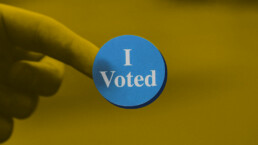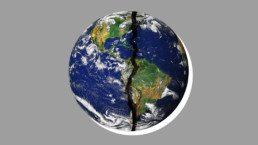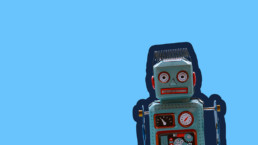
The stock market continues to adversely react to political tensions, by erasing a significant amount of value from all corners of the market without any distinction of industry, or company performance.
This isn’t the first time nor the last time that we see aggressive fluctuations that are tied more to fear, political posturing, and emotional reactions than to the actual value of individual stocks. To all you Game of Thrones fans out there [SPOILERS AHEAD], this is the equivalent of Daenerys completely destroying the city of King’s Landing with her dragon…which, I think we can all agree was a complete overreaction…what should we do? Diversify!
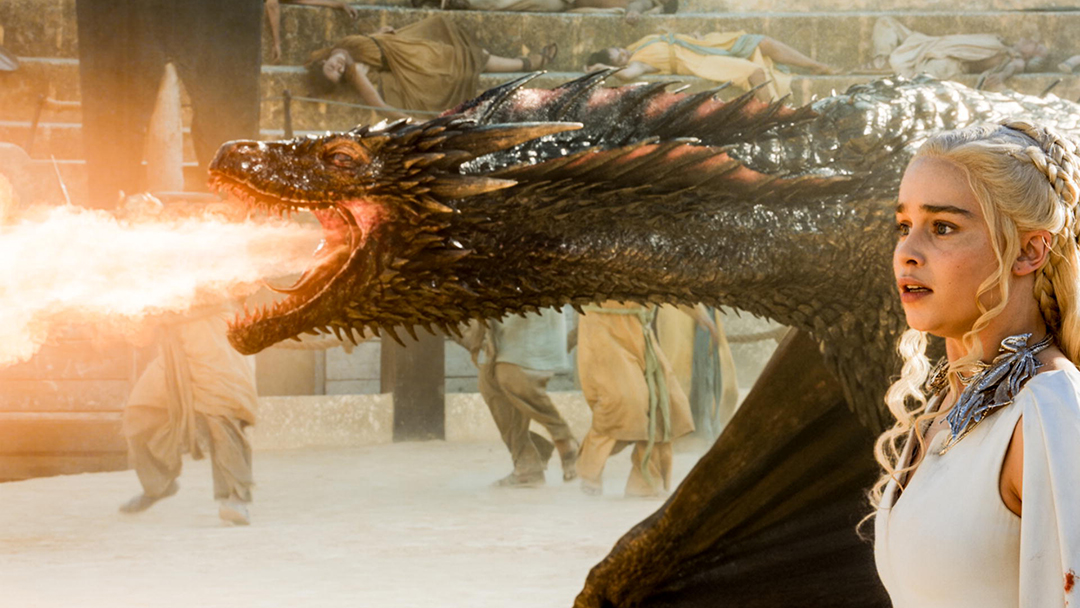
It has been a long-standing notion in the investing world that diversification and asset allocation are major contributors to long-term performance. Moreover, if we examine the top performers and true wealth creators we see that it is not enough to diversify just in stock and bonds (since they both reside in essentially the same public market – i.e., King’s Landing). It is prudent to have other asset classes in your portfolio, ones that are not correlated to public markets.
The catch? These asset classes, such as venture capital, private equity, and direct investment in companies, have an extremely high monetary threshold of entry – eliminating the ability for the majority of investors to access these and leaving them trapped in the path of the dragon. The solution? Democratize the investment world!
Here at CoPeace, through our different rounds of investing and our future direct public offering we provide a way for all investors, big or small, to diversify their investments by providing an extremely low threshold of entry to direct impact investing. This allows an access point for each investor’s capital to directly reach to companies that are doing good for the world in the private market and are not correlated to stock market fluctuations.
Hanan Levin is a Senior Investment Advisor at CoPeace. As a forward-thinking holding company, CoPeace is building a portfolio of carefully selected for-profit companies with measurable social and environmental impact. To learn more about impact investing, check out CoPeace’s Intro to Impact Investing.
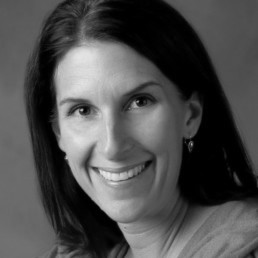
Everyone loves a bargain, and I can personally attest to the near-euphoria a fashion bargain can illicit. But do we ever stop and ask ourselves, “Why is this t-shirt so cheap?” On the heels of Fashion Revolution Week, and the sixth anniversary of the Rana Plaza collapse in Bangladesh where over 1,000 garment workers died, let’s take a moment to find out.
Often referred to as “fast fashion,” the garment industry has evolved into a competitive marketplace centered around bulk manufacturing, requiring hyperspeed production at ultra-low costs. Trends are no longer designed to last for a season, but rather for just a few days or weeks. This intentionally drives the demand for the newest trend, requiring more garment production, and therein lies the vicious cycle. The results of this system are much greater than the ability to produce a cheap t-shirt:
- Fashion is the 2nd most polluting industry, runner-up only to oil and gas
- The fashion industry will take up 25% of the globe’s carbon footprint by 2050
- 150 billion new pieces of clothing are produced every year
- Only 10% of clothes donated to thrift stores get re-sold, the remaining go to landfill
- Slave labor and abhorrent working conditions are commonplace to drive down production costs
So the next time we walk into a store, and that $3 t-shirt is displayed front-and-center, let’s consider our options. Let’s ask #whomademyclothes? Let’s ask ourselves if we truly need it. Let’s use our purchasing power as a vehicle to create positive change, by supporting “slow fashion” brands that operate in more socially- and environmentally-responsible ways. Let’s disrupt the system that is not working for our global community. Let’s save $3 and so much more.
Meg Masten is the Chief Relationship Officer at CoPeace. As a forward-thinking holding company, CoPeace is building a portfolio of carefully selected for-profit companies with measurable social and environmental impact. To learn more about impact investing, check out CoPeace’s Intro to Impact Investing.
May 24, 2019
Moneyball

“The inability to envision a certain kind of person doing a certain kind of thing, because you’ve never seen someone who looks like him do it before, is not just a vice. It’s a luxury. What begins as a failure of the imagination ends as a market inefficiency…”
Michael Lewis – MoneyBall, The Art of Winning an Unfair Game
As we continued to explore and expand CoPeace’s identity in the impact investing world, Michael Lewis’ book MoneyBall came to mind, or maybe it was my uncanny resemblance to Brad Pitt (the primary actor in the movie version), that triggered the thought….I guess we’ll never know.
In the book, Lewis discusses the shift that occurred to the sport of baseball when an innovative General Manager changed the way he looks at the game, spearheading the idea that a team can win championships without superstars, he showed that all you need is a group of players with great potential at their positions, working together for one common goal. He challenged the old “know how” and brought a new approach built on analytics and a team mentality – and what was the outcome?…EVERY team in baseball these days uses this methodology, and that’s how championships are won!
How does this apply to us? Just change the Words “General Manager” to CoPeace and “players” to the companies under the holding umbrella of CoPeace and….boom…we’ve changed the game of impact investing forever. We’re not looking for just any superstar; we are looking for innovative, socially responsible companies with great potential, that will consistently “hit singles” and run the bases. With our HEAD+HEART+MATH approach across several of these complimentary holdings, we’ve developed our own “MoneyBall” version of impact investing, resulting in a WIN for EVERYONE.
Hanan Levin is a Senior Investment Advisor at CoPeace. As a forward-thinking holding company, CoPeace is building a portfolio of carefully selected for-profit companies with measurable social and environmental impact. To learn more about impact investing, check out CoPeace’s Intro to Impact Investing.
The Power of Policy

If you haven’t seen the documentary film, “Saving Capitalism,” it’s worth 73 minutes of your time this week. It follows former Secretary of Labor and Professor, Robert Reich, as he takes us on his life journey and comes to the following conclusion: “The preferences of average Americans appear to have only a minuscule, near-zero, statistically non-significant impact on public policy.” This is the ultimate challenge we face, not only as Americans, but as global citizens.
Having just returned from SOCAP18, the leading social capital conference in the world, I’m struck by the overall consensus that broad, systemic changes are necessary to achieve sustainable, scalable, positive impact. And system change requires – you guessed it – policy change. We will never be able to reverse global warming, solve world hunger, end slave labor, or successfully tackle other social crises if governmental policies are not aligned with these goals.
As election day approaches in the United States, it’s critical that we exercise not only our right to vote, but our duty to elect leaders who will work to implement socially responsible public policy. Vote thoughtfully next Tuesday with your ballot. And vote intentionally everyday with your wallet. The decisions we make with our money are powerful and send a direct message to those with great influence. These simple actions are giant steps toward driving the power of policy in a positive direction.

Meg Masten is the Chief Relationship Officer at CoPeace. As a forward-thinking holding company, CoPeace is building a portfolio of carefully selected for-profit companies with measurable social and environmental impact. To learn more about impact investing, check out CoPeace’s Intro to Impact Investing.
It's Time for a Major Disruption

Our world today is full of discord and conflict, more so than any other time in recent history. The direction we are moving is destructive and divisive, and I’m not just referring to the political climate. Consider the following:
Seventeen of the 18 warmest years since modern record-keeping began have occurred since 2001. The clothes we wear everyday, produced through “fast fashion,” is the #2 polluting industry in the world, second only to that of oil and gas. We have created a full-blown opioid epidemic, driven solely by greed, profits, and convenience. The gender pay gap still exists, as does social injustice and systemic oppression for people of color. So, now what?
Innovation is doing the same things a bit better. Disruption is doing new things that make the old things obsolete. Unfortunately, we are well beyond the call for innovation – it’s time for a major disruption. We need to disrupt how we do things. We need to disrupt our paradigms. We need to disrupt our societal norms to the point that it makes people uncomfortable. So, where do we begin?
Let’s start by disrupting the very idea of capitalism. Society’s historical version, based on the Friedman Doctrine, is based on the premise that a company’s only social responsibility is to increase profits, playing a key role in facilitating our current global crises. What if we revered capitalism as the primary vehicle for restoring global order, with profit becoming an intended consequence? What if the positive bottom line occured because of, not in spite of, the social impact it directly caused? What if we exercised our conscience every time we made a purchase, chose a vendor, or invested our money?
CoPeace was created to be a part of this major disruption. Check us out at copeace.com, and let us help you “Grow Your Money for Good.”
Meg Masten is the Chief Relationship Officer at CoPeace. As a forward-thinking holding company, CoPeace is building a portfolio of carefully selected for-profit companies with measurable social and environmental impact. To learn more about impact investing, check out CoPeace’s Intro to Impact Investing.
I Don't Get It

My favorite scene from the movie Big (where a 13-year-old boy becomes an adult overnight) involves Tom Hanks (playing the adult boy) repeatedly raising his hand and saying, “I don’t get it” while the “corporate expert” is trying to sell his new idea for the next best selling toy – a robot that turns into a…building!? (which i think we can all agree is no match to Optimus Prime).
That’s how I felt – yes, like Tom Hanks in Big (sans a Zoltar Machine…but the holidays are coming up so there is always a chance) – I didn’t get it!
After working for more than a decade in the Capital Markets realm, I decided I wanted to do more. So for the past two years, I’ve been working on a venture with my brother, a biochemical engineer, to launch a series of waste-to-energy plants. The project hits all the markers of impact investing: stand alone financially successful plants with immediate impact on climate change by significantly lowering greenhouse gas emissions and other pollutants. Sounds like a no brainer, right? That’s what I thought as well.
As we went down the road of looking for investors, we were met with a wide array of rejection, all culminating into one main theme: our investment wasn’t “appealing enough.” Basically, this was not a technology play that was going to be the next billion dollar company. What we did have, however, was a project which will not only help the environment, but also yield a steady cash flow and a very attractive return. But that, my friends, wasn’t good enough.
Fast forward to the summer of 2018, I came across CoPeace. I loved their mission, ideals, and more importantly, the team, so we joined forces and set off to build a different type of impact investing company!
In essence, the current impact investing market is mostly comprised of investment vehicles that are transposing hard coded traditional investment parameters, created with the sole objective of maximizing returns under any market condition, onto the completely different market paradigm of impact investing.
So, what makes CoPeace different?
We listen to the needs of different communities around the world and invest in people and companies with great ideas. Together, we help them achieve strong financial returns while enacting real change (sorry for the grandiose statement, but it’s true).
Our strategy doesn’t ignore important criterias such as returns, a strong management team, and a multitude of other financial and economic indicators, but neither do we create an arbitrary investment framework full of check-boxes that generates a singular look and feel that ALL of our investments have to fit into perfectly. Instead, our goal is to create an intertwining DIVERSE network of individually-picked investments under one umbrella, working together to generate impact synergy. In other words, at CoPeace we DO get it, we Grow Your Money for Good!
Hanan Levin is a Senior Investment Advisor at CoPeace. As a forward-thinking holding company, CoPeace is building a portfolio of carefully selected for-profit companies with measurable social and environmental impact. To learn more about impact investing, check out CoPeace’s Intro to Impact Investing.

